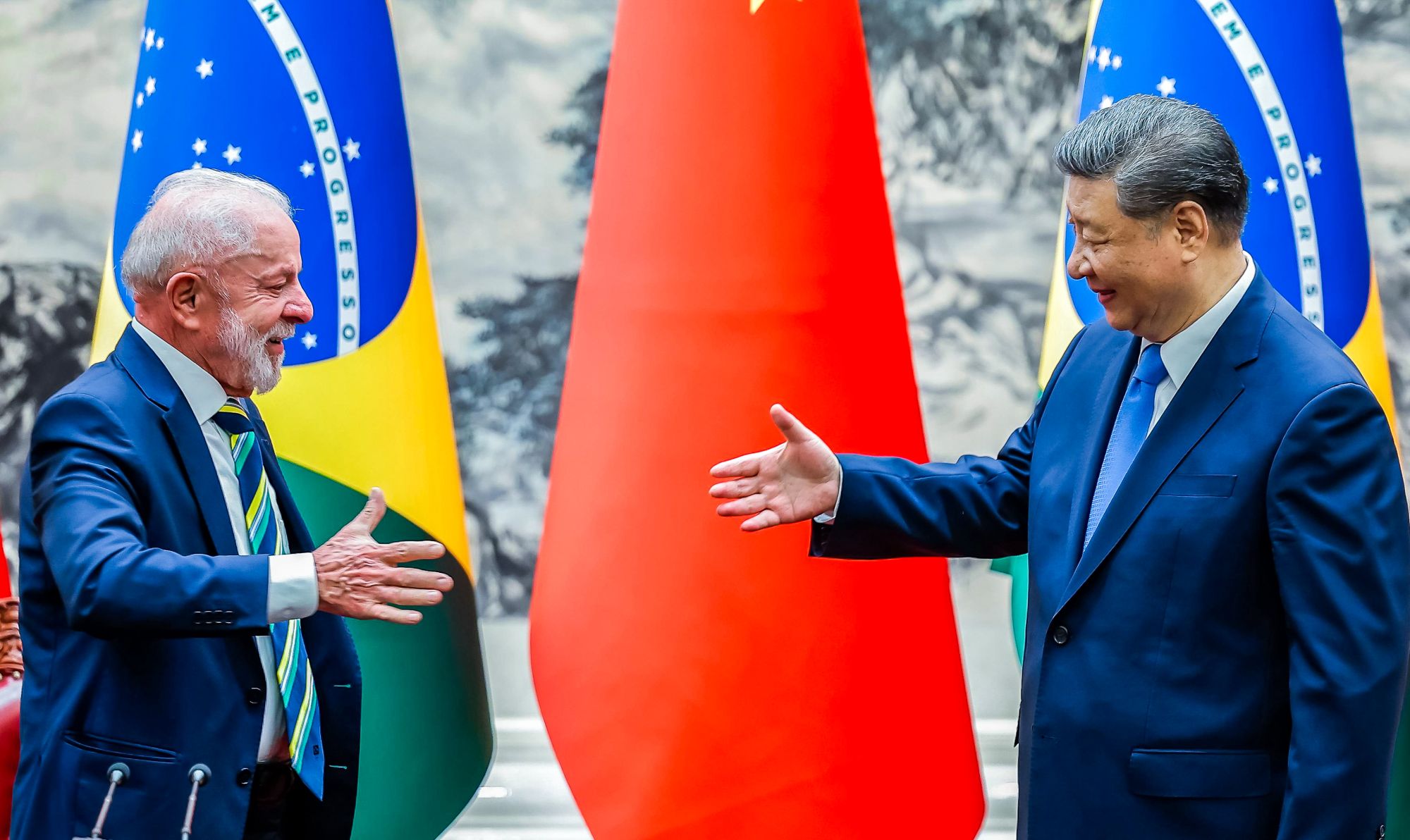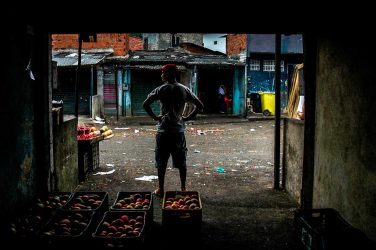Brazilian President Luiz Inácio Lula da Silva announced Monday that Chinese investors would be allocating some R$ 27 billion (US$ 4.69 billion at the current exchange rate) to infrastructure and other development in the South American country. He made those remarks during his participation in the Brazil-China Business Forum in Beijing. The investments will also cover the areas of education and technology, it was explained.
According to the Palácio do Planalto, the working place of the Brazilian president, Lula’s recent meetings will contribute to further expand Chinese investments in Brazil. The new agreements provide for investments of US$ 1 billion in the production of renewable aviation fuel (SAF) from sugar cane, and the creation of a Research and Development Center (P&D) in the area of renewable energy.
In his closing speech at the forum, Lula emphasized that the bond between Brazil and China was not a “common relationship” but one of “two countries committed to solving the problem of impoverishment that has marked the lives of both” for a long time.
“It is remarkable that China has lifted, in 40 years, 800 million people out of poverty. Just as it is remarkable that Brazil, in just 10 years, has lifted 54 million people out of poverty in my country,” said Lula.
In Lula’s view, these facts are a consequence of the inclusion of a significant part of the population in the economy of these countries.
Brazil and China are “strategic partners and uncontrollable actors” in the current geopolitical context, amid the “resurgence of protectionist tendencies,” Lula also said.
“We are committed to reducing trade barriers, and we want more integration,” he further noted. Brazil and China still have the challenge of expanding the exchange of tourists, and to this end, new air connections between the two countries are planned.
The Brazilian president recalled that, in November last year, during a meeting with Chinese President Xi Jinping, synergies were established between the development projects of the two countries. “Today, we are harvesting the first fruits of this work,” he stressed.
“The Virtual Center for Research and Development in Artificial Intelligence, the result of the partnership between Dataprev and Huawei, will be essential for the development of applications in agriculture, health, public safety, and mobility. Telebras’ partnership with Spacesail will expand the supply of low-orbit satellites and bring the Internet to more Brazilians, especially those living in more remote areas,” Lula also pointed out.
The president also mentioned eight agreements providing for the transfer of technology in the production of medicines, active pharmaceutical ingredients, vaccines, and medical equipment. In addition, he highlighted the cooperation between Senai Cimatec and Windey, which will result in the installation of a Research and Development Center for solar and wind energy and supply systems.
“China’s experience in the refining of critical minerals will contribute to the valorization of production in our territory, including the transfer of technology in the assembly cycles of electric batteries. We have abundant reserves of rare earths, lithium, niobium, cobalt, copper, graphite, uranium, and titanium,” said Lula.
Lula also spoke about the East-West Railway Corridor, which will “be a fundamental undertaking for Brazilian logistics and one of the most transformative for guaranteeing food security in the world.”
“Connecting the Atlantic and Pacific oceans, through five integration routes, will facilitate trade and bring more development to the interior of the South American continent. The bioceanic routes will reduce the distance between Brazil and China by approximately 10,000 kilometers,” he added.
Technological advances will demand specialized professionals, Lula also recalled. “It is important to remember that people will not be competitive in the technological world, in the digital world, if they do not invest in education; if they do not invest in engineering, mathematics. The ideal for Brazil is not to be exporting [only] soybeans. It is to export intelligence and knowledge,” he underlined.
Hence, “we have to invest in education, as the Chinese did. Ask the Chinese how many millions of engineers they have trained in recent years. That’s the technological revolution [with] which the Chinese are presenting themselves to the world,” Lula insisted.
For those who claim that Brazil only exports primary goods and iron ore, Lula claimed that such sales, while positive, were the result of a lack of investment in education. “Brazil needs to thank God for exporting agribusiness, because people also need to know how much technology there is today in a gram of soybeans. And how much genetic engineering there is in a kilo of meat or of beef, pork, or in a sack of millet,” he argued.
“We have to export agribusiness and use this money that comes in to invest in education, so that we can be competitive with China in the production of electric cars, in the production of batteries, in the construction of artificial intelligence. No one is going to thank us Brazilians for that,” Lula concluded.
The trade flow between China and Brazil amounts to some $160 billion, as per data from the Brazilian trade agency ApexBrasil.
Against Trump Protectionism
Brazil and China released two joint statements Tuesday following a meeting between Presidents Xi Jinping and Luiz Inácio Lula da Silva and other encounters in Beijing.
Overall, these documents addressed the ongoing war in Ukraine, a commitment to multilateralism and sustainability, a reform to the United Nations and its Security Council, economic cooperation, and a one-China stance.
The first statement called for dialogue between Moscow and Kyiv to end the war, while the second addresses multilateralism and the strengthening of sustainable actions to mitigate the harmful effects of climate change.
During his current visit to China, Lula has spoken repeatedly about the war in Ukraine and was heavily critical of Israel’s actions in the Gaza Strip.
“Humanity is shrinking in the face of the atrocities committed in Gaza. There will be no peace without an independent and viable State of Palestine, living side by side with Israel. Only a reformed UN will be able to fulfill the ideals of peace, human rights, and social progress enshrined in 1945 by the Charter of San Francisco,” said Lula.
In their joint statement, Brazil and China welcomed Russian President Vladimir Putin’s proposal this week to open peace negotiations while highlighting Ukrainian President Volodymyr Zelensky’s reaction.
“The governments of Brazil and China hope that direct dialogue between the parties will begin as soon as possible, the only way to put an end to the conflict,” the document mentions, positively assessing “the recent signs of willingness to engage in dialogue and expressing their expectation that the parties will be able to reach an understanding that will enable the start of fruitful negotiations.”
In the opinion of the Brazilian and Chinese governments, it is necessary to find a political solution to the crisis in Ukraine “at its roots, with a view to a lasting and fair peace agreement that is ultimately binding on all parties”.
The second declaration deals with the search for peace and stability in the Middle East, including the Gaza Recovery, Reconstruction and Development Plan, adopted by the League of Arab States in March 2025.
The two countries called on the international community to “promote the continued and effective implementation of the ceasefire agreement and to alleviate the humanitarian crisis in Gaza”, in the search for a “definitive solution to the Israel-Palestine conflict.” They also reiterated their “support for the two-state solution, with an independent, sovereign and viable State of Palestine, living side by side with Israel, in peace and security, on the 1967 borders, including the West Bank, the Gaza Strip, and with East Jerusalem as its capital.” The document also rejected “the use of terrorism and all acts of violence.”
Brazil and China also pledged to work together to defend multilateralism, safeguard international equity and justice, and reject unilateralism, protectionism, and the quest for hegemony. In this regard, they advocated a fairer and more equitable international system and the peaceful resolution of any disputes.
A reform to the United Nations Security Council was also included in the document, citing the need to make the UN more democratic and representative.
“The Chinese side attaches great importance to the influence and role that Brazil plays in regional and international affairs and understands and supports Brazil’s aspiration to play a greater role in the UN, including in its Security Council,” read the document.
In addition, it advocated comprehensive reform of the international financial architecture “to expand the influence of developing countries and their representation in international financial institutions.”
Brazil reiterated that it “firmly adheres to the principle of one China”, recognizing that “there is only one China in the world and that Taiwan is an inseparable part of Chinese territory.” The South American country also praised Beijing’s efforts “to achieve peaceful national reunification,” which was received with “great appreciation” by the Chinese side.
The document criticizes the so-called tariff and trade wars [as implemented by the United States after the inauguration of Donald Trump], stating that protectionism does not respond to current challenges.
In addition to advocating for the strengthening of cooperation between countries in the Global South, the declaration calls for all countries to pay more attention to issues related to human development, with a special view on reducing poverty and in favor of measures for education, health, and sustainable development.
It also highlights the partnerships between Brazil and China in initiatives and projects that cover the areas of financial cooperation, health, infrastructure (roads, railways, and ports), artificial intelligence, science, technology and innovation, human resources training, the environment, renewable energies and ecological transition, and the naval sector.
Brazil and China also jointly advocate global governance in cyberspace, as well as combating disinformation on the internet, to “promote a cyberspace that is open, secure, stable, accessible, peaceful and interoperable.”
Both countries also addressed cooperation between scientific research institutions and companies in the agricultural area to promote technological innovation, including biotechnology and social development.





